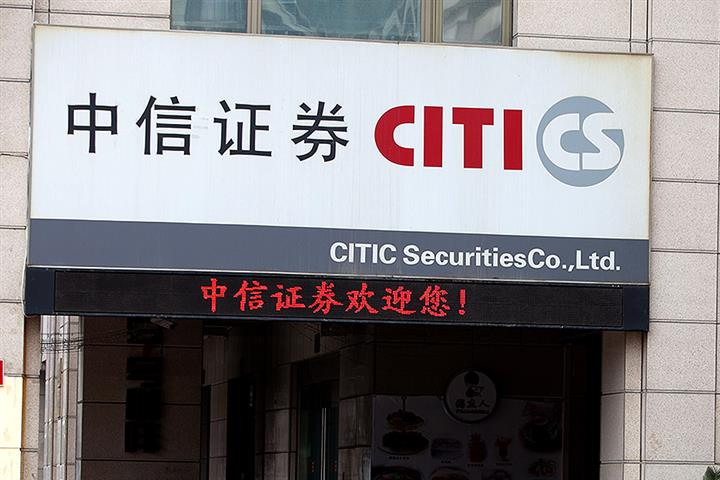 CSC Financial Denies Citic Securities Merger Report; Shares Rocket
CSC Financial Denies Citic Securities Merger Report; Shares Rocket(Yicai Global) April 14 -- CSC Financial’s board secretary denied knowledge of an upcoming merger with Citic Securities after Bloomberg reported the process to potentially combine China’s two largest brokerages has begun. The shares of both firms surged.
The pair and their state shareholders “have recently started due diligence and a feasibility study on how to structure the deal,” Bloomberg reported today, citing people familiar with the matter.
“I’m not aware of it,” CSC’s Wang Guangxue told Yicai Global. Citic, which is China’s largest brokerage by assets and owns 5 percent of CSC, made no comment.
Bloomberg went on to say that the merger would create a Beijing-based investment bank valued at USD67 billion, more than Goldman Sachs Group. The further opening-up of China’s financial markets has also added urgency to the formation of a Chinese brokerage that can compete with Wall Street’s titans, the report added.
Shares of CSC [SHA:601066], which trades as China Securities, hit the exchange-imposed limit of 10 percent this afternoon before closing up almost 8.9 percent at CNY32.85 (USD4.65). Its Hong Kong-listed stock [HKG:6066] surged more than 11 percent to HKD7.17 (USD0.93), before closing at HKD6.99, an 8.5 percent gain.
Citic Securities [SHA:600030] closed up 4.2 percent at CNY23.21 after earlier climbing as much as 6.5 percent. In Hong Kong, its shares [HKG:6030] ended 3.3 percent higher at HKD15.
Citic Securities had more than CNY791.7 billion (USD112.1 billion) worth of assets under management at the end of last year, a 21 percent increase from a year earlier. Net profit rose 30.2 percent to CNY12.2 billion (USD1.7 billion) in 2019 on CNY43.1 billion in revenue, a 15.9 percent gain. Its biggest shareholder, Citic Group, has a 16.5 percent stake.
CSC’s assets under management rose 46.4 percent last year to CNY285.7 billion. Net profit leaped 78 percent to CNY5.5 billion on CNY13.7 billion in revenue, a rise of 24 percent. It is controlled by the Assets Supervision and Administration Commission of Beijing, which owns 35 percent.
Edited: Kim Taylor